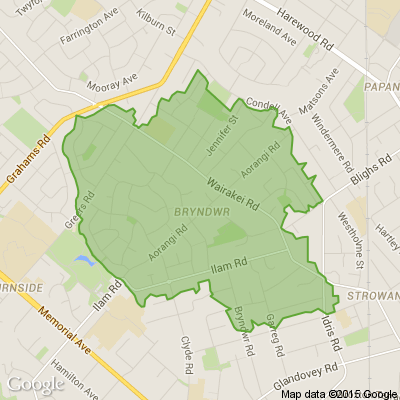23 positive reminders for 2023
I read this recently and think it's worth sharing:
1. Over the last 20 years, the proportion of people living in extreme poverty has almost been cut in half.
2. The average life expectancy around the world today is 72. In 1800, among all babies who were ever born, roughly half died during their childhood. Life expectancy was just 30 years and no country had a life expectancy above 40. Life expectancy at birth was only 45 years in 1870.
3. Flying has gotten 2,100 times safer over the past 70 years. 2016 was the second safest year in aviation history. The odds of being fatally injured in a plane crash are just 0.000025%.
4. The real price of plane travel in the U.S. has fallen by more than half since the late 1970s.
5. The share of homes that had electricity in 1870 was exactly zero. Today the proportion of people with electricity is 85%.
6. In 1905, a Vermont doctor and his chauffeur were the first to successfully drive a car across the country from San Francisco to New York. It took them 63 days. Today you can fly cross country in a matter of hours while using wireless Internet.
7. There was no entertainment available to the average family in 1870, except for a few travelling musicians or circus performers or in-home board or card games. Today our entertainment options are almost unlimited.
8. The average American now retires at age 62. One hundred years ago, the average American died at age 51.
9. The percentage of the population living past their 65th birthday was only 34% in 1870 but jumped to 56% by 1940 and 77% by 2000.
10. Up until the 1870s, people typically worked 11-12 hour days. By 1900, the typical worker put in 10 hours a day, 6 days a week. It wasn’t until 1940 that it came down to the standard 40-hour, 5-day workweek. And these weren’t office jobs sitting behind a desk. The conditions for most workers were terrible and hazardous to their health.
11. The proportion of people killed annually in wars is less than a quarter of what it was in the 1980s, one-seventh of what it was in the early 1970s, one-eighteenth of what it was in the early 1950s, and 0.5% of what it was during World War II.
12. The world’s nuclear stockpiles have been reduced by 85% since the Cold War.
13. The world has gotten richer (as measured by Gross World Product) in 51 of the last 55 years.
14. Since 1960, the fraction of a person’s life taken up by work has fallen by 25% through a combination of shorter workweeks, more paid time off, and longer retirements
15. Every single country in the world today has a lower infant or child mortality rate than it had in 1950.
16. Between 1961 and 2009 the amount of land used to grow food increased by 12%, but the amount of food that was grown increased by 300%.
17. Between 1950 and 2009, the rate of death in traffic accidents fell six-fold.
18. Roughly half of the adults in the world own a smartphone.
19. Just 7% of the world’s population lived in a free or relatively free society in 1850. Today that number is closer to two-thirds.
20. Early in the 19th century, 12% of the world could read and write. Today it’s 83%.
21. In 1820, more than 80% of the world was unschooled. It’s estimated that by the end of the century, this number will be close to zero.
22. In 1920, just 28% of American teenagers ages 14-17 were in high school. The latest stats show over 80% graduated high school, of whom 70% went on to college.
23. In 1940, less than 5% of Americans held a bachelor’s degree. By 2015, it was up to one-third.
Adapted from: A Wealth of Common Sense, Ben Carlson, 6 April 2023
Related Articles
Poll: Should the government levy industries that contribute to financial hardship?
As reported in the Post, there’s a $30 million funding gap in financial mentoring. This has led to services closing and mentors stepping in unpaid just to keep helping people in need 🪙💰🪙
One proposed solution? Small levies on industries that profit from financial hardship — like banks, casinos, and similar companies.
So we want to hear what you think:
Should the government ask these industries to contribute?

-
59.5% Yes, supporting people is important!
-
26.2% No, individuals should take responsibility
-
14.3% ... It is complicated
Addictive Eaters Anonymous
After ten years of depression, my life had hit rock bottom
I remember being ‘different’ around food for most of my life. This included things such as being the person who had two cream buns at morning tea when everyone else had one; eating icing sugar by the spoonful directly from the packet; and being the family member who went into the kitchen after dinner to eat the leftovers. There are numerous other examples – too many to list. I could overeat anything. If I couldn’t get my preferred favourites (e.g. chocolate), I’d be eating the vegetables.

Poll: Do you have a go-to adverse-weather checklist for your family? ☔⚠️
As reported in the Press, the same low-pressure system that lashed the North Island over the weekend is now making its way south, bringing heavy rain and strong winds with it. It’s a soggy start to the week for many of us.
With more wild weather on the cards, we’re curious: do you have a go-to adverse-weather checklist for your family? Or are you more of a “grab the torches and hope for the best” household?

-
42.9% Yes - we like to be prepared
-
46.4% Nah
-
10.7% This is on my to-do list!






 Loading…
Loading…